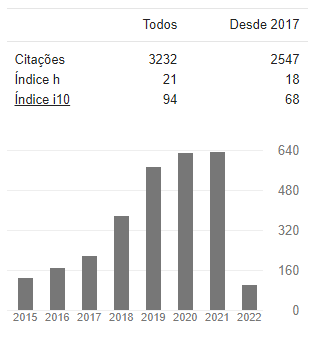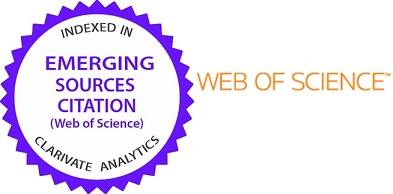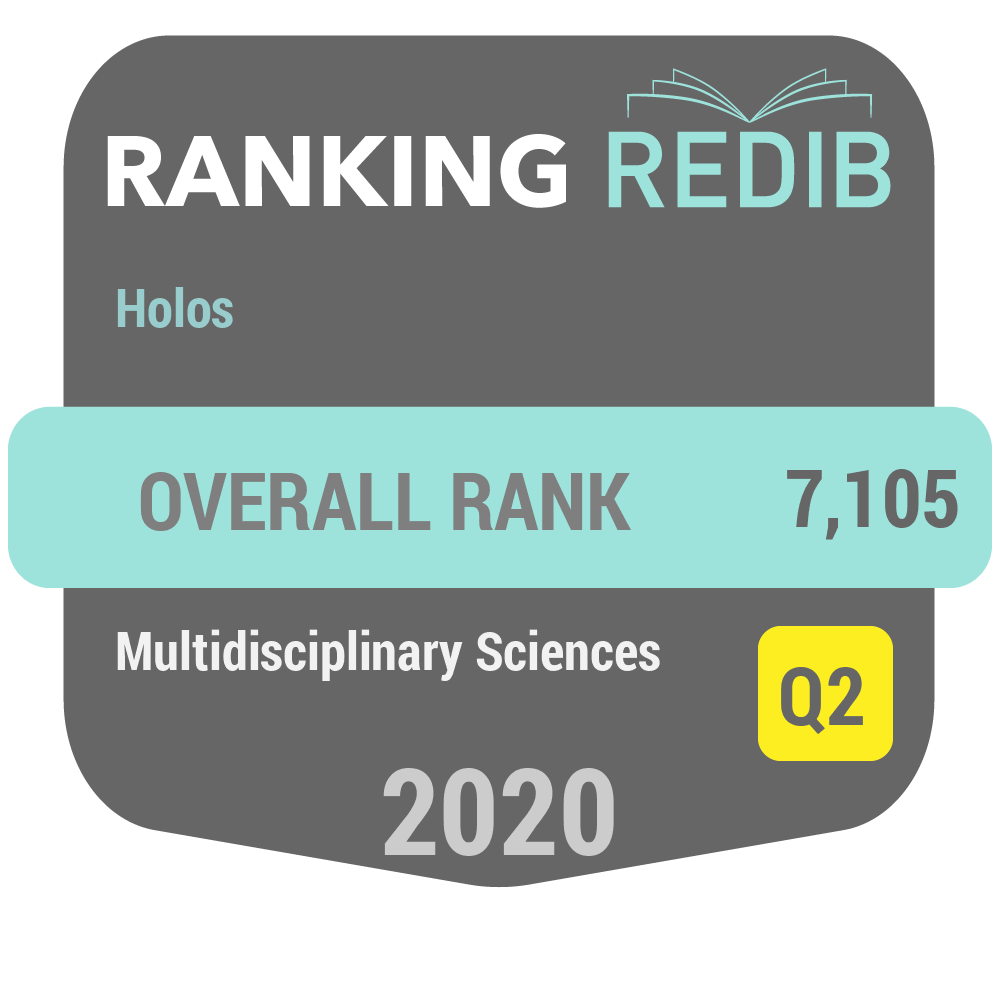AMBIENTE INSTITUCIONAL E RESPONSABILIDADE SOCIAL CORPORATIVA NA CAFEICULTURA AFRICANA
DOI:
https://doi.org/10.15628/holos.2018.6860Palavras-chave:
Instituições, Democracia, Café, Sustentabilidade, DesenvolvimentoResumo
A cafeicultura é uma atividade econômica importante para os agricultores de muitos países da América, África, Ásia e Oceania. Entretanto, a cafeicultura africana perdeu participação no mercado mundial nas últimas décadas. Este trabalho analisou o declínio da cafeicultura africana sob a perspectiva da Nova Economia Institucional (NEI). O trabalho foi feito em duas etapas. Na primeira, foi realizada uma pesquisa bibliográfica sobre a história política de quatro países que eram os mais importantes produtores de café da África na década de 1960, a saber: Angola, Etiópia, Costa do Marfim e Uganda. Na segunda etapa, foi realizada uma pesquisa documental sobre ações de Responsabilidade Social Corporativa (RSC) de companhias multinacionais de café nos países africanos em anos recentes. Os dados obtidos foram interpretados a partir dos pressupostos da NEI. Os resultados indicam que houve grande instabilidade política nos quatros países analisados, algo que impede o desenvolvimento de instituições capazes de fomentar o desenvolvimento econômico. Nesse contexto, os resultados mostram que a ação das empresas multinacionais preenche um vazio deixado pelo Estado.
Downloads
Referências
Acemoglu, D. (2008). Introduction to modern economic growth. Princeton University Press.
Acemoglu, D., Robinson, J. (2012). Por que as nações fracassam: As origens do poder, da prosperidade e da pobreza. São Paulo: Elsevier.
Auer, R. A. (2013). Geography, institutions, and the making of comparative development. Journal of Economic Growth, 18(2), 179-215.
Baron, D. P. (2001). Private politics, corporate social responsibility, and integrated strategy. Journal of Economics & Management Strategy, 10 (1), 7-45.
Barone, G., Mocetti, S. (2014). Natural disasters, growth and institutions: A tale of two earthquakes. Journal of Urban Economics, 84, 52-66.
Belasen, A. R., Hafer, R. W. (2012). Well-being and economic freedom: Evidence from the States. Intelligence, 40(3), 306-316.
Bellachew, B. (2015). A brief account of coffee production in angola: a quick assessment report. Recuperado em 31 de janeiro, 2018, de http://www.iaco-oiac.org/sites/default/files/travel_report_no_11_-_angola.pdf.
Bertoncello, S. L. T., Chang Jr, J. (2007). A importância da responsabilidade social corporativa como fator de diferenciação. FACOM–Revista da Faculdade de comunicação da FAAP, 17, 70-76.
Blau, B. M., Brough, T. J., Thomas, D. W. (2014). Economic freedom and the stability of stock prices: A cross-country analysis. Journal of International Money and Finance, 41(C), 182-196.
Brammer, S., Jackson, G., Matten, D. (2012). Corporate social responsibility and institutional theory: New perspectives on private governance. Socio-Economic Review, 10(1), p. 3-28.
Bueno, N. P. (2004). Lógica da ação coletiva, instituições e crescimento econômico: uma resenha temática sobre a Nova Economia Institucional. EconomiA, 5(2), 361–420.
Bureau de Inteligência Competitiva do Café. (2015). Relatório Internacional de Tendências do Café, 4, n.4 & 5. Recuperado em 30 de agosto, 2016, de http://www.icafebr.com.br/publicacao2/Relatorio%20v4%20n4%20e%205.pdf
Campbell, J. L. (2007). Why would corporations behave in socially responsible ways? An institutional theory of corporate social responsibility. Academy of management Review, 32(3), 946-967.
Carroll, A. B. (1979). A three-dimensional conceptual model of corporate performance. Academy of management review, 4(4), 497-505.
Carroll, A. B. Corporate social responsibility evolution of a definitional construct. Business & Society, 38(3), 268-295.
Central Intelligence Agency. (2017). The World Factbook. Recuperado em 30 de junho, 2017, de https://www.cia.gov/library/publications/the-world-factbook/.
Collier, P., Dercon, S. (2014). African Agriculture in 50 Years: Smallholders in a Rapidly Changing World? World Development, 63, 92-101.
Conceição, O. A. C. (2002). Instituições, crescimento e mudança na ótica institucionalista. Porto Alegre: Heuser, Fundação de Economia e Estatística Siegfired Emanuel.
Costa. M. A. N. (2005). Fazer o bem compensa? Uma reflexão sobre a responsabilidade social empresarial. Revista Crítica de Ciências Sociais, 73, 67-89.
Dahlsrud, A. (2008). How corporate social responsibility is defined: an analysis of 37 definitions. Corporate Social Responsibility and Environmental Management, 15 (1), 1-13.
Davis, L. E., North, D. C., Smorodin, C. (1971). Institutional change and American economic growth. London: Cambridge University Press.
Easterly, W. (2014). The Tyranny of Experts: Economists, Dictators, and the Forgotten Rights of the Poor. New York: Basic Books.
Fernandes, J. M. (2014). A responsabilidade social das empresas no contexto da agricultura familiar. Um estudo de caso: as plantações de cacau na Costa do Marfim. SOCIUS Working Papers. Recuperado em 22 de agosto, 2016, de http://www.repository.utl.pt/handle/10400.5/7585.
Fiani, R. (2011). Cooperação e Conflito: instituições e desenvolvimento econômico. São Paulo: Elsevier.
Frynas, J. G., Yamahaki, C. (2016). Corporate social responsibility: review and roadmap of theoretical perspectives. Business Ethics: A European Review, 25(3): 258–285.
Garriga, E., Melé, D. (2004). Corporate social responsibility theories: Mapping the territory. Journal of Business Ethics, 53(1-2), 51-71.
Gehring, K. (2013). Who Benefits from Economic Freedom? Unraveling the Effect of Economic Freedom on Subjective Well-Being. World Development, 50, 74-90.
Gil, A. C. (2002). Como elaborar projetos de pesquisa (4. ed.) São Paulo: Atlas.
Hall, J. C., Lawson, R. A. (2014). Economic Freedom of the World: an accounting of the literature. Contemporary Economic Policy, 32, (1), 1–19.
Heo, U., Hahm, S. D. (2015). Democracy, Institutional Maturity, and Economic Development. Social Science Quarterly, 96(4), 1041-1058.
Herrera-Echeverri, H., Haar, J., Estévez-Bretón, J. B. (2014). Foreign direct investment, institutional quality, economic freedom and entrepreneurship in emerging markets. Journal of Business Research, 67(9), 1921-1932.
Hsieh, N. (2009). Does global business have a responsibility to promote just institutions? Business Ethics Quarterly, 19 (02), 251-273.
International Coffee Organization. (2015). Sustainability of coffee sector in Africa. Recuperado em 15 de julho, 2017, de http://www.ico.org/documents/cy2014-15/icc-114-5-r1e-overview-coffee-sector-africa.pdf.
International Coffee Organization. (2017a). Historical Data on the Global Coffee Trade: Total Production. Recuperado em 16 de dezembro, 2017, de http://www.ico.org/historical/1990%20onwards/PDF/1a-total-production.pdf.
International Coffee Organization. (2017b). Historical Data on the Global Coffee Trade: Imports. Recuperado em 16 de dezembro, 2017, de http://www.ico.org/historical/1990%20onwards/PDF/2b-imports.pdf.
International Coffee Organization. (2017c). International Coffee Agreement 2007. Recuperado em 16 de dezembro, 2017, de http://www.ico.org/ica2007.asp.
Klein, P. G. (1998). New Institutional Economicsç. Recuperado em 8 de junho, 2017, de https://papers.ssrn.com/sol3/papers.cfm?abstract_id=115811.
Kreitlon, M. P. (2004). A ética nas relações entre empresas e sociedade: fundamentos teóricos da responsabilidade social empresarial. XXVIII Encontro Anual da Anpad, Curitiba.
Lee, M.D. P. (2008). A review of the theories of corporate social responsibility: Its evolutionary path and the road ahead. International Journal of Management Reviews, 10 (1), 53-73.
McDaniel, P. A., Cadman, R., Malone, E. (2016) Shared vision, shared vulnerability: a contente analysis of corporate social responsibility information on tobacco industry websites. Preventine Medicine, 89, 337-344.
Matten, D., Moon, J. (2008). “Implicit” and “explicit” CSR: a conceptual framework for a comparative understanding of corporate social responsibility. Academy of Management Review, 33 (2), 404-424.
Ménard, C., Shirley, M. M. (2005). Introduction. In: Ménard, C., Shirley, M. M. (Orgs.). Handbook of New Institutional Economics. Dordrecht: Springer.
Mzembe, A. N., Lindgreen, A., Maon, F., Vanhamme, J. (2016). Investigating the Drivers of Corporate Social Responsibility in the Global Tea Supply Chain: A Case Study of Eastern Produce Limited in Malawi. Corp. Soc. Responsib. Environ. Mgmt., 23(3), 165–178
Neudorfer, N. (2015). Development, democracy and corruption: How poverty and lack of political rights encourage corruption. Journal of Public Policy, 35(3), 421-457.
North, D. C. (2010). Desempenho econômico através do tempo. Revista de Direito Administrativo, 255, 13-30.
North, D. C. (1989). Institutions and economic growth: an historical introduction. World Development, 17 (9), 1319-1332.
Pendergrast, M. (2010). Uncommon Grounds: The History of Coffee and How it Transformed our World (2nd ed). New York: Basic Books.
Ponte, S. (2002). The ‘Latte Revolution’? Regulation, Markets and Consumption in the Global Coffee Chain. World Development, 30(7), 1099-1122.
Ranganathan, S., Nicolis, S. C., Spaiser, V., & Sumpter, D. J. (2015). Understanding democracy and development traps using a data-driven approach. Big data, 3(1), 22-33.
Silva, E. C., Azevedo, A. S., Barros, M., Reis, N. D. (2018). Responsabilidade social corporativa na produção de cacau: análise das ações da indústria de chocolate. Revista Gestão e Desenvolvimento, 15(1), 183-204.
Spaiser, V., Ranganathan, S., Mann, R. P., Sumpter, D. J. T. (2014). The dynamics of democracy, development and cultural values. PLoS ONE, 9(6), e0118878.
Specialty Coffee Association of America - SCAA. (2013). A Blueprint to End Hunger in the Coffeelands. Recuperado em 30 de agosto, 2016, de http://scaa.org/PDF/SCAA-whitepaper-blueprint-end-hunger-coffeelands.pdf.
Topik, S. (2003). The Integration of the World Coffee Market. In: Clarence-Smith, W. G., Topik, S. The Global Coffee Economy in Africa, Asia, and Latin America 1500-1989. Cambridge: Cambridge University Press.
United States Department of Agriculture. (2017). Production, Supply and Distribution Online. Recuperado em 30 de junho, 2017, de http://apps.fas.usda.gov/psdonline/psdQuery.aspx.
Van Marrewijk, M. (2003). Concepts and definitions of CSR and corporate sustainability: Between agency and communion. Journal of Business Ethics, 44(2-3), 95-105.
Vergara, S. C. (2012). Método de Pesquisa em Administração (5ª ed.). São Paulo: Editora Atlas.
Wang, Q., Dou, J., Jia, S. (2016). A Meta-Analytic Review of Corporate Social Responsibility and Corporate Financial Performance: The Moderating Effect of Contextual Factors. Business & Scoiety, 55(8), 1083-1121.
Williamson, O. E. (1996). The Mechanisms of Governance. New York: Oxford University Press.
Wood, D. J. (1991). Corporate social performance revisited. Academy of Management Review, 16 (4), 691-718.
World Business Council for Sustainable Development. (1991). Corporate Social Responsibility. Genebra: WBCSD Publications.
Yoon, Y., Gürhan-Canli, Z., Schwarz, N. (2006). The effect of corporate social responsibility (CSR) activities on companies with bad reputations. Journal of consumer psychology, 16(4), 377-390.









































